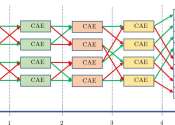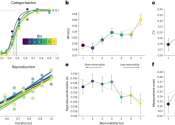Artificial Intelligence (AI) is the intelligence of machines and the branch of computer science which aims to create it. Major AI textbooks define the field as "the study and design of intelligent agents," where an intelligent agent is a system that perceives its environment and takes actions which maximize its chances of success. John McCarthy, who coined the term in 1956, defines it as "the science and engineering of making intelligent machines."
The field was founded on the claim that a central property of human beings, intelligence—the sapience of Homo sapiens—can be so precisely described that it can be simulated by a machine. This raises philosophical issues about the nature of the mind and limits of scientific hubris, issues which have been addressed by myth, fiction and philosophy since antiquity. Artificial intelligence has been the subject of breathtaking optimism, has suffered stunning setbacks and, today, has become an essential part of the technology industry, providing the heavy lifting for many of the most difficult problems in computer science.
AI research is highly technical and specialized, so much so that some critics decry the "fragmentation" of the field. Subfields of AI are organized around particular problems, the application of particular tools and around longstanding theoretical differences of opinion. The central problems of AI include such traits as reasoning, knowledge, planning, learning, communication, perception and the ability to move and manipulate objects. General intelligence (or "strong AI") is still a long-term goal of (some) research, while many researchers no longer believe that this is possible.









